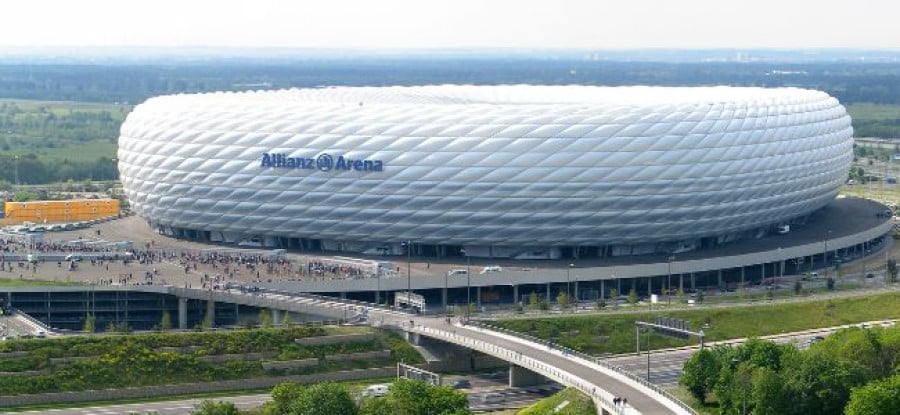Football club ownership in Germany – less romantic than you might think

In this hyper-commodified era of football, with professional clubs organized primarily as commercial companies - some of which are controlled by super-rich foreign investors - many believe that the German Bundesliga has remained the last stronghold of member-run clubs, deeply rooted in their communities with low ticket prices and high attendance numbers.
Indeed, German football has implemented regulation stipulating that if a club is run as a commercial company, the majority of the voting shares of that company always have to be controlled by a member-controlled parent association (the "50+1 rule" – see below). Furthermore, in March 2015, the Bundesliga introduced regulations that also restrict minority ownership in more than one club to avoid investors owning significant stakes in several different clubs. Unsurprisingly, there are exceptions to the rules and reality shows that clubs have become creative in adapting to the regulation in their endeavours to attract investment.
This article gives an overview of the factual and regulatory evolution of club ownership in Germany, explaining in detail the 50+1 rule and its application in practice by looking at the examples of TSG 1899 Hoffenheim, TSV 1860 Munich and RasenBallsport Leipzig. It also touches briefly on the new rule regarding multiple club investments, which has gained relevance with the recent promotion of FC Ingolstadt to the 1st Bundesliga. As a result the next season will feature three clubs in the German top-tier league which are substantially influenced by the German car manufacturer Volkswagen or its subsidiary Audi.
Introduction
At the outset, the issue of club ownership is closely connected to the legal (corporate) form of a club, namely the distinction between the member association and the commercial company.1 Whereas, in the motherland of football – England - professional football clubs have been organized as commercial companies for most of the 20th century, in Germany and elsewhere clubs remained local member associations much longer. These local member associations usually offer different sports besides football (e.g. FC Bayern Munich has departments for baseball, basketball, handball, bowling, chess, and table-tennis among others). Yet, the professionalization and commercialization of football required many of these entities to transform their professional football departments into companies since the legal framework for member associations no longer matched the commercial realities of clubs with annual turnovers reaching into the hundreds of million Euros. In particular:
- Clubs organized as member associations are steered by their boards. However, the major decision-making power is vested in the general assembly, a body generally made up of all (voting) members of the association, which complicates the decision-making process;
- Member associations generally enjoy the tax benefits of non-profit organisations, yet the realities of modern club football demand commercial activities that are hardly compatible with a non-profit tax regime;
- Member associations are in principle not open to investments through shareholding. Membership rights in an association cannot be traded unlike the shares of a commercial company.
Not least because of the reasons stated above, in England clubs are generally incorporated as limited companies (public or private2), a legal form that allows them to minimize the personal risk of their owners and potentially increase their attractiveness to investors at the same time. The legal status of its clubs has arguably helped the English Premier League to become the most successful football league in the world –at least from a revenue perspective. However, the organizational structures of its clubs and the lack of regulation to the contrary has also led to a number of major takeovers; allowing multinational corporations and private investors to take control of some of the biggest names in domestic club football, e.g. Chelsea FC, Manchester City FC, or Liverpool FC. More than half of the Premiere League's 20 teams are now in foreign hands.3
In 1998, the German Football Association ("DFB") also allowed the clubs of the Bundesliga, which were traditionally organized as member associations, to transform their professional football departments into commercial companies. However, at the same time, provisions were put in place that demanded the majority of voting rights within such companies (i.e. >50%) still be controlled by its parent member associations. This rule-change marked the birth of the famous 50+1 rule.
To continue reading or watching login or register here
Already a member? Sign in
Get access to all of the expert analysis and commentary at LawInSport including articles, webinars, conference videos and podcast transcripts. Find out more here.
- Tags: Bundesliga | Corporate Law | England | Football | German Football Association | Germany | Governance | Premier League | Regulation | Regulations of the UEFA Champions League | Treaty on the Functioning of the European Union | UEFA
Related Articles
- A guide to The Football League’s decision on Massimo Cellino
- Should fans play a greater role in the ownership of English & Welsh football clubs?
- A blueprint for the future of sports governance
- A Guide to Club Structures for Semi-Professional and Amateur Sports Clubs 2015
Written by
Christian Keidel
Christian Keidel is a partner Partner at Lentze Stopperhas. He been focusing his area of expertise for more than 12 years on dispute resolution in sport and the advice of international sport associations. He has represented successfully stakeholders in sports in numerous cases in front of the dispute resolution bodies of UEFA and FIFA as well as the Court of Arbitration for Sport (CAS) and state courts. He is also a long-time advisor to international sports associations with respect to regulations, good governance and the commercialisation of rights.
Alexander Engelhard
Alexander Engelhard is a dispute resolution and commercial lawyer advocating before state courts and arbitral tribunals, especially in the sport, media and entertainment industry. He also acts as arbitrator and mediator. In addition, he advises clients on the drafting of contracts, rules and regulations.
He is a member of various arbitration and sports law-related organisations. He is also a lecturer at the University of Frankfurt for German and international arbitration, as well as on dispute resolution in national and international sport.
JUVE Handbook 2018/2019: highly recommended lawyer for dispute resolution.





